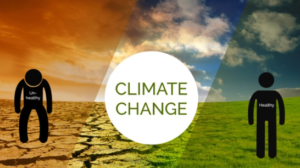
Real Estate Markets in a Warming World
Climate change is a continuous fact that significantly affects many industries, including real estate; it is no more a threat from far-off. The effects on real estate markets are considerable as sea levels rise, harsh weather events becoming more frequent, and temperature patterns change. Examining its impacts on property values, investment strategies, and market trends, this paper investigates the complex link between real estate and climate change.
Recognising Climate Change and Its Effects
What is climate change?
Long-term changes in temperature, precipitation, wind patterns, and other components of the Earth’s climate system define climate change. Driven mostly by human activities especially the combustion of fossil fuels climate change has resulted in global warming, which presents major problems to ecosystems, businesses, and people.
Real Estate Sector and Vulnerability
The physical environment is intrinsically related with real estate. Apart from being financial assets, properties are fundamental components of ecosystems and societies. As so, they are susceptible to hazards connected to the climate including:
Rising sea levels and more frequent storms mean that coastal regions are progressively at danger.
Drought-prone areas with high temperatures run a greater chance of flames.
Extreme Weather: Direct impact of rising frequency of hurricanes, tornadoes, and heat waves on property safety and desirability
The Financial Effects of Environmental Change
Market dynamics and property values
The impact of climate change on real estate markets most immediately is its effect on property values. Properties in high-risk areas such coastal areas prone to flooding are losing value. On the other hand, demand is growing for places thought to be more sustainable or safer.

Changing Trends in the Market
Buyers are starting to give properties’ resistance to climate impacts top priority as they grow more conscious of climate threats. This change results in:
Demand for Sustainable Properties: Homes with sustainable materials and energy-efficient technologies are growingly appealing.
People are leaving places susceptible to climate change, which affects the local real estate markets.
Investing Strategies in a Changing Environment
Changing their approaches in response to climate change are investors as well. The following trends show the changing scene of investments:
Real estate investments now depend critically on Environmental, Social, and Governance (ESG) standards. Properties’ environmental impact and resilience are under more and more examination by investors.
Investors seeking properties able to endure climate-related difficulties are including climate risk assessments into their decision-making process.
Urban Advancement and Climate Change
Resilient Infrastructure
Building resilient infrastructure takes front stage as cities adjust to climate change. Urban designers are stressing environmentally friendly methods that lower sensitivity to climate effects. Important strategies consist in:
Incorporating energy-efficient designs and materials will help to reduce environmental footprints by green building standards.
Advanced drainage systems and green rooftops help to reduce flood hazards.
Land Use and Zoning rules
Changing patterns of climate are making municipalities rethink zoning rules. Previously allocated for development areas could now be judged inappropriate depending on flooding concerns or other climate-related issues. This change in land use planning immediately affects chances for real estate development and investment possibilities.
Government’s and policy’s roles in regulatory frameworks
In the framework of climate change, governments are very important in forming real estate markets. Policies meant to mitigate climate hazards might affect property values and investment choices. Some important legislative actions consist in:
Building codes :
Stricher building rules requiring climate-resilient construction can improve property lifetime and safety.
Financial incentives for green buildings help developers to embrace environmentally friendly methods of operation.
Education and Public Awareness
Informed real estate decision-making depends on public awareness of climate hazards. Developers, investors, and buyers can all benefit from educational programs in knowing how climate change will affect property markets.
Real Estate’s Future in a World Rising Temperatures: Adaptation and Innovation
The real estate industry needs to adapt and innovate as climate change unfolds. This includes adopting fresh technology and approaches meant to improve sustainability and resilience. Possible areas of emphasis are:
Including smart technology into constructions helps to maximize resource management and energy efficiency.
Attracting future occupants will depend critically on growing communities that give sustainability and resilience first priority.
Possibilities in the Market
Though climate change presents difficulties, there are chances for progressive developers and investors. Stakeholders can position themselves well in a shifting market by emphasizing sustainable and strong qualities.
Final Thought
The terrain of real estate is being profoundly changed by climate change. From affecting property values to guiding investment plans, the effects of climate change are broad. Understanding the link between climate change and real estate markets will be crucial for all those engaged as the industry adjusts to these difficulties.
The real estate sector can negotiate the complexity of a warming world and provide value for both investors and communities alike by giving sustainability, resilience, and informed decision-making top priority. Though the future is unknown, one thing is certain: real estate’s interaction with climate change will always alter and calls constant attention and adaptation.
The link between climate change and real estate markets is described in this paper together with how it affects property values, investment methods, urban development, government policy, and future trends. Ask if you require more specifics on any part or greater explanation overall.